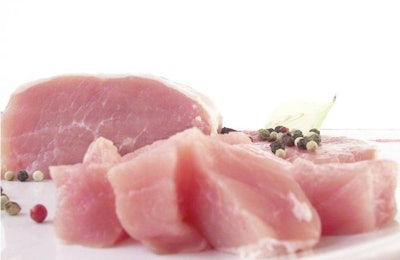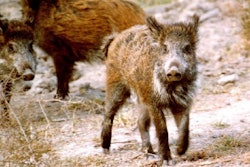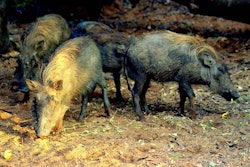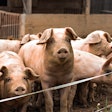
China demand for pork increases as US producers feel pressure from processing plant closures
Challenges stemming from the novel coronavirus (COVID-19) pandemic are hitting Tyson Foods’ U.S. producers, but the company has seen opportunities arise abroad as China emerges from its virus-related lockdown.
African swine fever (ASF) has also increased China’s demand for pork as Tyson’s decision to ban ractopamine use in its U.S. market hogs has expanded export opportunities.
During this week’s earnings call, Tyson Foods President Dean Banks said its pork segment’s “strong demand, solid operational execution and ample hog supplies led to a 7.3% operating margin in (the second quarter). As we transition to a ractopamine-free hog supply, our ability to sell pork to the global markets has expanded.”
Tyson Fresh Meats announced in October 2019 that it would prohibit the use of ractopamine in the market hogs it buys from farmers beginning in February 2020.
“This new capability has been met with increasing global demand as African swine fever continues to reduce pork supplies in Asia,” Banks said. “Year-over-year increases of pork to China were up significantly for the quarter, and we expect strong demand to continue as China recovers from this COVID-19 lockdown.”
CEO Noel White said China’s emergence from COVID-19 lockdowns has created export opportunity.
“Research data indicates China is reopening its economy, which is encouraging signal of domestic protein disappearance,” he said. “Lower levels of supply caused by African swine fever continued to present opportunities fulfill international demand.”
US plant closures create pressure
Domestically, though, Banks said Tyson’s hog producers are feeling pressures resulting from processing plant closures.
“In the current environment, we see strong demand and ample supply of hogs, but reduced industry processing capacity of nearly 50% to the COVID-19 has pressured the supply chain and dramatically reduced overall profitability,” he said. “As pork plants across the country have continued to shut down, hog producers are met with much lower processor demand for their market-ready hogs. We recognize how this impacts our producer community and are anxious to safely resume operations at our facilities to provide them with an outlet for their hogs.”
According to an April 30 report, nearly 40% of pork processing capability in the U.S. is offline on any given day.
View our continuing coverage of the novel coronavirus (COVID-19) pandemic.
View our continuing coverage of the African swine fever outbreak.


















